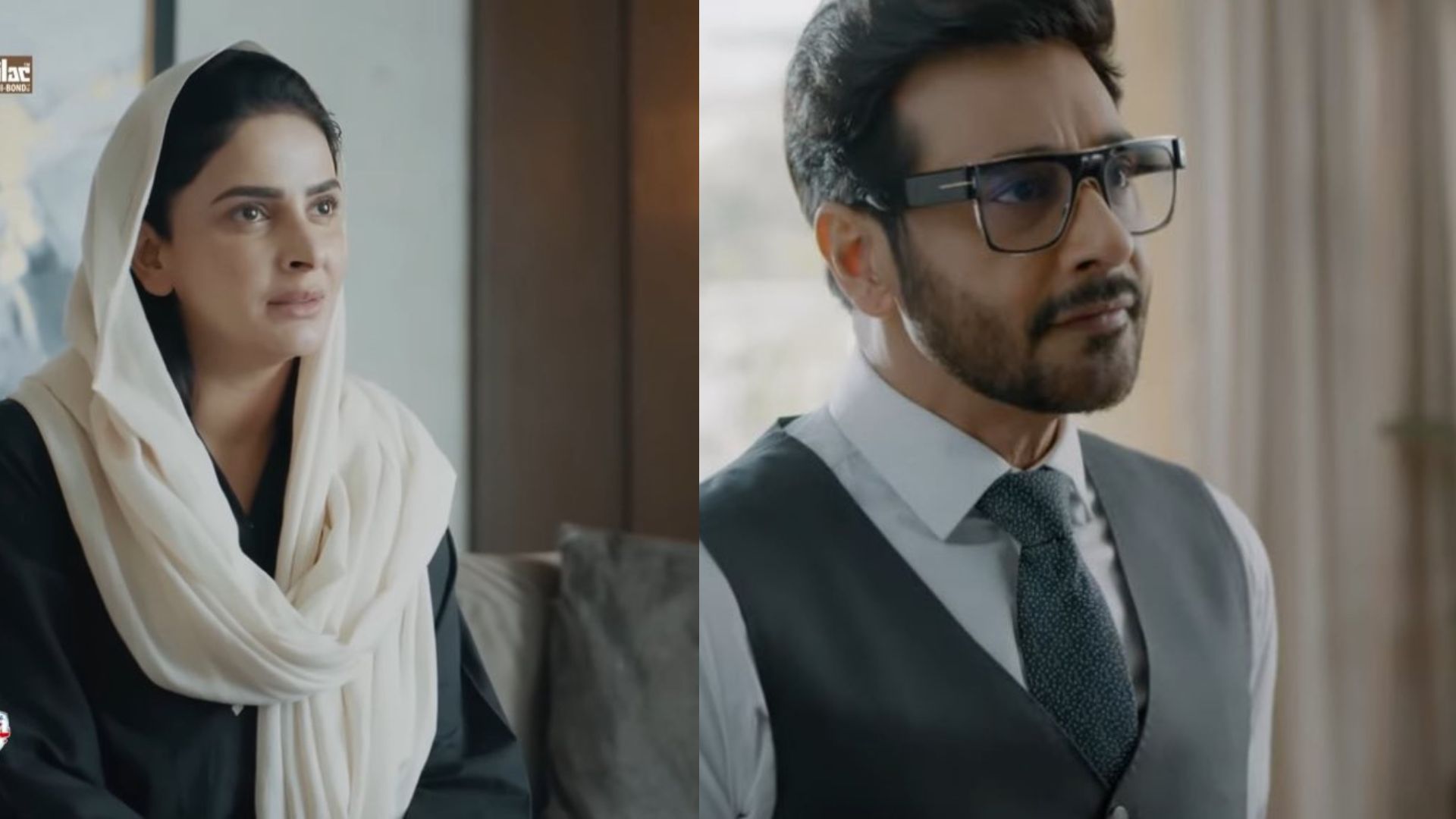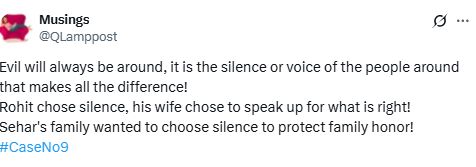TW// discussion of sexual violence
Since its debut on Pakistani screens just a few weeks ago, Case No. 9 has been widely praised by social media users for its articulate portrayal of the legal and patriarchal hurdles that make it incredibly difficult for survivors of sexual violence and harassment to punish their abusers.

Carried by the powerful performances of an A-list cast including Saba Qamar, Aamina Sheikh, and Faisal Quraishi, and written by crime journalist Shahzeb Khanzada, the drama explores the aftermath of a survivor’s attempt to seek justice against her perpetrator. Sehar (played by Saba Qamar), a marketing head at a company, is assaulted by her boss Kamran (played by Faisal Quraishi) after being invited to his home under the false pretence of a family dinner with colleagues.
From this point on, Khanzada’s sharp writing and director Wajahat Hussain’s compelling direction trace how the legal system is often rigged to exhaust and discredit survivors. Sehar is repeatedly doubted—not just by authorities, but by her own family—and is constantly pressured to “prove” what happened to her. In episode 2, she escapes her parents’ house arrest to file a First Information Report (FIR) at the police station. There, she is coldly told by male officers that she should have reported the incident the same day it occurred—and that she should’ve brought her clothes along as evidence.
Even a female police officer joins in, bombarding Sehar with invasive and insensitive questions about her divorce and her relationship with the accused, further compounding her trauma.
Case No 9 lays bare how from the courts to the patriarchal society, rape is a crime that is solely supposed to shame the victims into silence, rather than hold abusers accountable for their actions. In episode 7, when Sehar and her family arrive in court for the cross-examination routine, Kamran’s lawyer attempts to paint the allegations as fabricated when he questions why she didn’t immediately file an FIR with the police. But from the flashback, we learn that Sehar’s parents had immediately restricted her from stepping a foot out of the house, fearing that society will destroy her reputation because of the allegation. We see that Sehar’s mother had destroyed the crucial evidence she needed to present her case in court by destroying her clothes, and even making her take a shower right after the crime.
Sehar’s own brother also blames her for leaving the house at night and locks her in the room, a bitter reflection of how often rape victims are forced to abandon their cases not out of their own will but because of the fear that ‘log kya kahenge’, as a user points out.

Or as another user pointed out, how the bro-code perpetuates the rape culture through the friendship between Kamran and Rohit (played by Junaid Khan).
Rohit was the first person to witness the crime and even helped Sehar get out of the house and to her car. However, he refused to testify against Kamran—choosing instead to protect both the company and his friendship with Kamran, despite knowing this behavior was part of a consistent pattern. In the recent episode, his wife, Manisha, uses her legal resources to support Sehar’s case. But when Rohit urges her to step away, she bluntly reminds him that she won’t turn away from the truth just to preserve her own power.

The sad reality is that none of this is new, because time and time again we have seen how survivors of abuse have been tarnished over baseless accusations such as when the TikToker Samiya Hijab was assaulted by her fiance, she was accused of fabricating the assault as an attempt to gain more followers on her accounts. The actress Nadia Hussain, had stepped in to stress that abuse is never justified, regardless of whether the woman was married, or in a relationship with her abuser.
As the upcoming episodes of Case No 9 unfold Sehar’s legal battle against Kamran, the drama underscores the bitter truth: how we are ready to question a woman’s character, her dating history before even looking at the man. Before questioning why women choose to stay with their abusive families, or why did a family refrain from leaving toxic-in laws, the real issue is that the system is designed to wear down survivors and keep them trapped in a cycle of shame and humiliation- eventually forcing them to give up their case.
Whether it was Samiya Hijab, Noor Mukadam, or countless others, public discourse has too often shifted the focus onto the victims—questioning their choices, their behavior, their “mistakes”—rather than confronting the actions and accountability of the perpetrators. Case No. 9 lays bare how deeply embedded these societal and institutional failures are, making justice not just difficult, but emotionally and psychologically punishing for those who dare to seek it.








